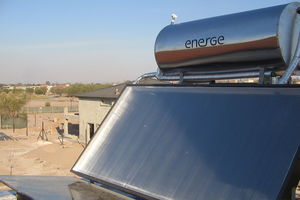 The November 30 deadline for the installation of solar water heating systems has brought more opportunities for suppliers of such products, an energy company has said.
The November 30 deadline for the installation of solar water heating systems has brought more opportunities for suppliers of such products, an energy company has said.
All industrial, commercial and large residential buildings in urban centres are required to install solar water heating systems, According to the Energy Regulations of 2012
The Energy Regulatory Commission extended the deadline from May 25 to Nov 30. This was done to give Kenyans more time to implement the rule. There are fines placed of up to 10,000 U.S. dollars for Property owners who fail to comply with the law.
The General Manager of Chloride Exide, Karanja Njoroge, said the law has increased demand for solar products in the country.
“We have therefore increased out personnel in order to assist Kenyans to conform to the regulations,” he added. The East African nation enacted the Solar Water Heating Regulations in 2012. It also gave building owners a five-year grace period to implement the order.
The law requires all premises within the jurisdiction of local authorities with hot water capacity requirements of over 100 litres a day to install solar heating systems. “There is a potential 30,000 to 40,000 households and 10,000 commercial institutions that are yet to comply with the law,” Njoroge said.
He added that Kenya has an ideal location to tap into the solar energy given its geographic location. “Give that it straddles the equator, it has abundant sunshine throughout the year,” he noted.
On average, households will need 1,200 dollars and institutions 10,000 dollars for the solar system. Waite noted that solar energy does provide consumers with significant savings in the long run though.
The engineer said that the cost of heating water accounts for approximately 60% of the electricity bills of consumers. He added that the cost of solar equipment has dropped by more than 25 percent in the past two years. “So the previous barrier of high upfront costs for solar has significantly come down,” he said.



